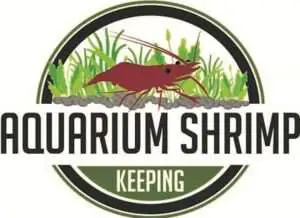Cherry shrimp eggs look like tiny greenish, yellowish dots that are attached to the underside of the female shrimp. They are usually held in a brood pouch located under the shrimp’s abdomen, between the swimming legs (also known as swimmerets).This is called being berried.
Welcome to the fascinating world of cherry shrimp and their eggs! This article will uncover the intriguing lifecycle of cherry shrimp, specifically honing in on what their eggs look like. Let’s dive in, shall we?
What Are Cherry Shrimp?
Cherry shrimp, or Neocaridina davidi, are a popular freshwater aquarium shrimp species. Known for their vibrant red color, they bring a lively touch to any aquarium setup. But have you ever wondered about their reproductive process? Particularly, what do their eggs look like?
Reproduction Cycle of Cherry Shrimp
Cherry shrimp have a fascinating reproductive cycle. Females carry eggs, which they fertilize with the help of males. This process is quite intriguing and prompts us to explore further. So, what do these eggs look like?
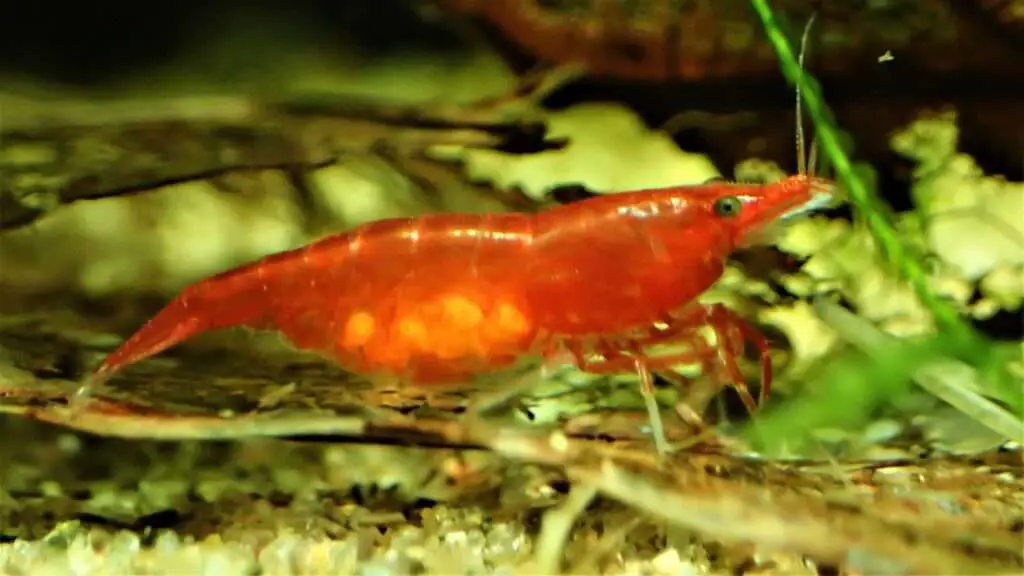
The Appearance of Cherry Shrimp Eggs
Cherry shrimp eggs have a unique appearance. They are tiny, roundish, and have a somewhat translucent, greenish-yellow color. They resemble miniature pearls, hidden away in the mother shrimp’s swimmerets, waiting to hatch into new life.
How Many Eggs Do Cherry Shrimp Lay?
A female cherry shrimp can lay anywhere between 20 to 30 eggs at a time, depending on her size and health. It’s an astonishing sight to behold when all those tiny eggs start hatching!
Incubation Period of Cherry Shrimp Eggs
The incubation period for cherry shrimp eggs ranges from 3-4 weeks, depending on the temperature and conditions of the tank. Keep your eyes peeled, as the arrival of new life is always an exciting event!
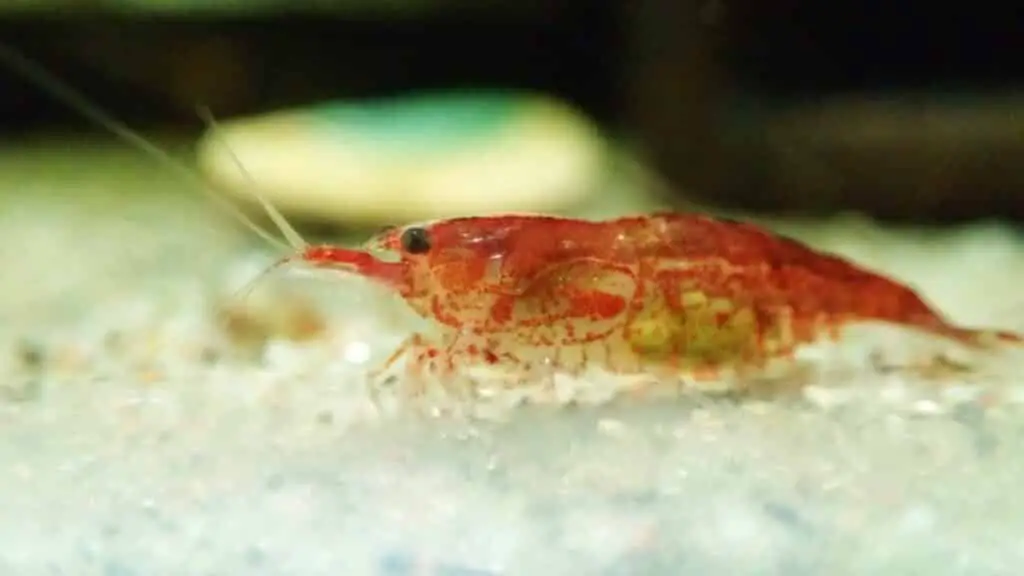
The Color of Cherry Shrimp Eggs
Cherry shrimp eggs, when first laid, appear greenish-yellow. As they mature and get closer to hatching, they turn darker, often appearing more opaque and greyish.
The Size of Cherry Shrimp Eggs
Each egg is incredibly small, about the size of a grain of coarse sand. Despite their size, each one holds the potential for a new cherry shrimp, making them fascinating subjects of interest.
Hatching of Cherry Shrimp Eggs
When it’s time to hatch, the baby shrimp, or ‘shrimplets’, emerge fully developed. They are a tiny copy of their parents, ready to start their own life journey.
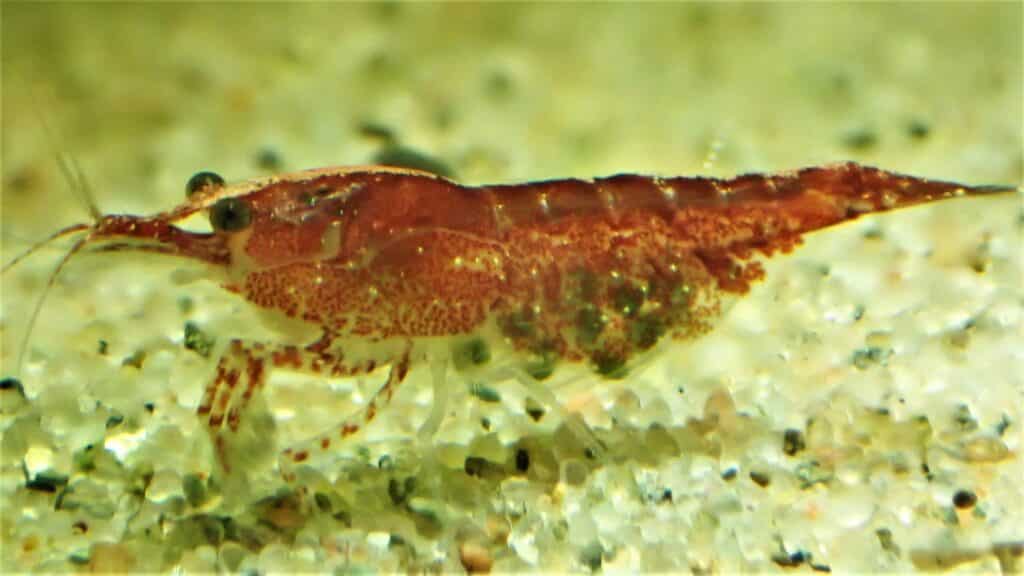
Taking Care of Cherry Shrimp Eggs
Caring for cherry shrimp eggs primarily involves maintaining optimal water conditions. A stable temperature, pH, and appropriate levels of nitrates, nitrites, and ammonia are crucial for egg survival.
Common Challenges with Cherry Shrimp Eggs
Some common challenges include unfertilized eggs, which turn white and are often discarded, and fluctuations in water conditions, which can affect the eggs’ health.
How to Increase Cherry Shrimp Egg Survival Rate
Increasing the survival rate of the eggs involves providing optimal water conditions, sufficient food, and avoiding stressors such as sudden temperature changes and very large water changes.
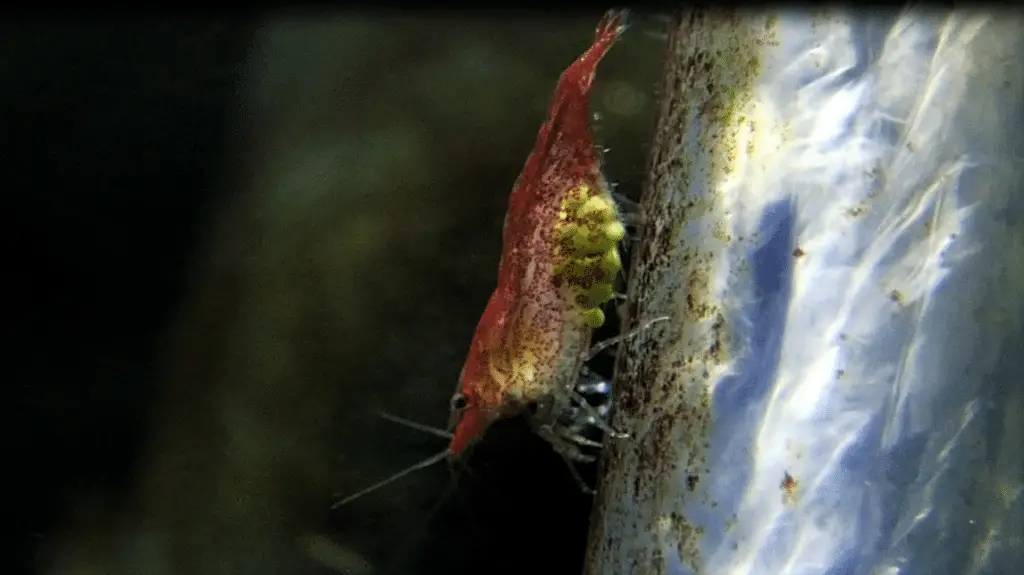
Interesting Facts about Cherry Shrimp Eggs
Did you know that you can actually see the eyes of shrimplets through the egg if you look closely enough when they’re about to hatch? This phenomenon is known as the ‘eyespot’ stage.
How to Identify Unfertilized Cherry Shrimp Eggs
Unfertilized eggs are identifiable by their white color. The mother shrimp will usually discard these eggs after a few days.
Lifecycle of Cherry Shrimp Post-Hatch
Post-hatch, the shrimplets start their lifeas tiny replicas of the adult shrimp, eating biofilm and growing until they reach maturity at around two months of age.
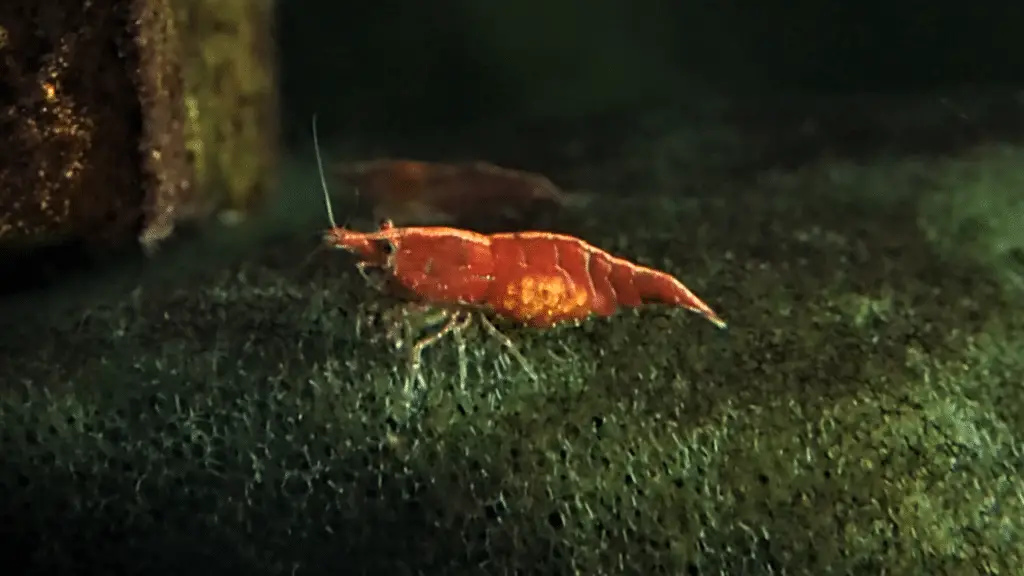
Conclusion
Understanding what cherry shrimp eggs look like, their care, and lifecycle, adds to the fascinating endeavor of shrimp-keeping. This knowledge not only enriches our experience but also increases the likelihood of a thriving cherry shrimp population in your tank.
Remember, the key to successful shrimp keeping is knowledge, patience, and a keen eye for detail. Happy Shrimp Keeping!
Frequently Asked Questions
- How can I tell if my cherry shrimp is carrying eggs?
- A female cherry shrimp carrying eggs is often referred to as being “berried.” You can identify a berried shrimp by looking for a cluster of small, round, greenish-yellow eggs under its abdomen, in the pleopods or swimmerets.
- What should I do if my cherry shrimp drops her eggs?
- If a cherry shrimp drops her eggs, it’s usually due to stress or poor water conditions. First, check your water parameters and make necessary adjustments. Some hobbyists try to save the dropped eggs by placing them in a mesh bag in the water current for oxygenation, but the success rate varies.
- How can I improve the survival rate of cherry shrimp eggs?
- Improving the survival rate of cherry shrimp eggs involves maintaining optimal water conditions (temperature, pH, and levels of nitrates, nitrites, and ammonia), providing enough food, and minimizing stressors like sudden temperature shifts or aggressive tank mates.
- What does it mean when cherry shrimp eggs turn white?
- If cherry shrimp eggs turn white, it typically indicates that the eggs are unfertilized or have become infected. The mother shrimp will usually discard these eggs after a few days.
- How can I encourage my cherry shrimp to breed?
- Breeding cherry shrimp requires creating an optimal environment that includes clean water with appropriate temperature and pH, a diet rich in nutrients, and providing plenty of hiding spaces for shrimplets.
- What are the ideal water conditions for cherry shrimp eggs?
- Cherry shrimp eggs need stable water conditions for successful development. The ideal temperature is around 72-82°F, with a pH level between 6.5 and 8. The water should also be free of harmful chemicals such as ammonia, nitrites, and high levels of nitrates.
- What do baby cherry shrimp eat?
- Baby cherry shrimp, or shrimplets, feed on biofilm, which naturally grows in a well-established aquarium. This biofilm is rich in various microorganisms, offering the shrimplets a nutritious start to life.
- How long do cherry shrimp live after hatching?
- Cherry shrimp typically live 1-2 years after hatching. They reach maturity and begin to breed at around two months of age.
- Can cherry shrimp crossbreed with other shrimp species?
- Cherry shrimp belong to the Neocaridina genus, which means they can crossbreed with other shrimp within the same genus. However, they cannot interbreed with shrimp from different genera, such as Caridina.
- Can I keep cherry shrimp in a community tank?
- Yes, cherry shrimp can thrive in a community tank, provided their tank mates are not aggressive or large enough to see them as food. Peaceful fish that occupy different tank regions make the best companions for cherry shrimp.
